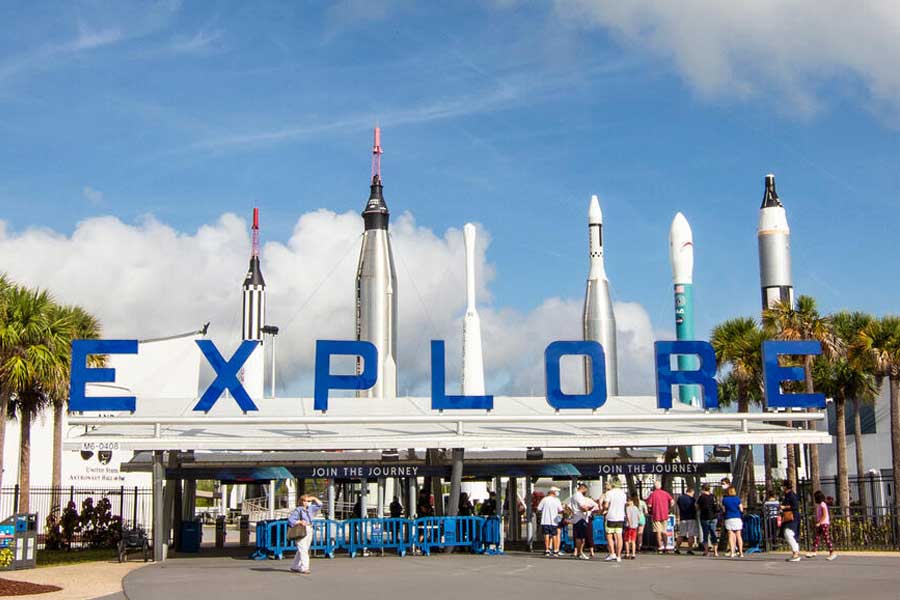Spain News Media
-
FIRST MINISTER YOUSAF SAYS THEY "WILL NOT BACK DOWN ON LAW AND ORDER" AND ASKS JUNCKER TO REFORM THE CONSTITUTION
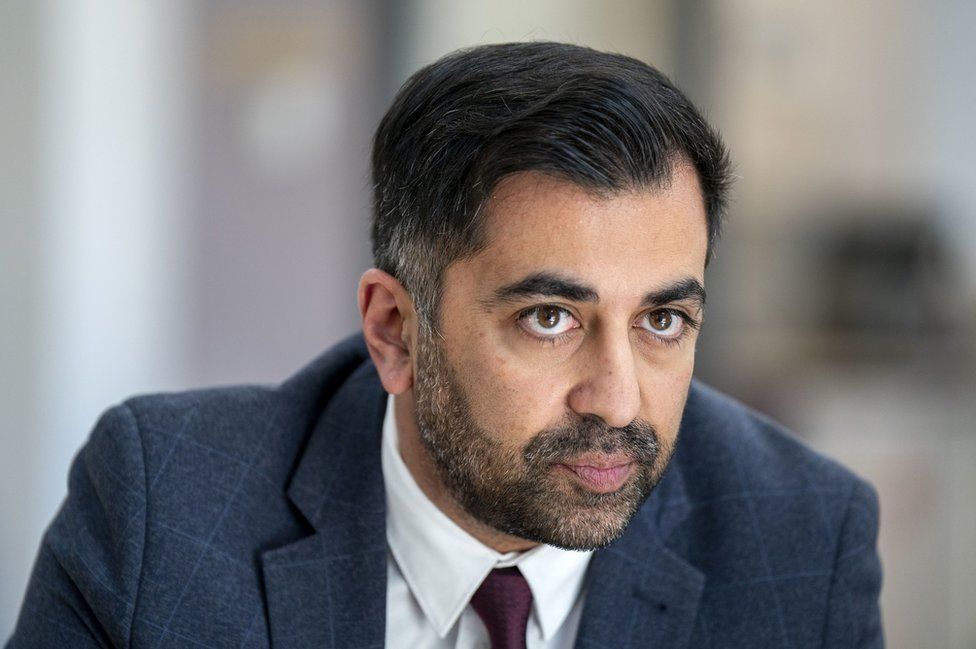
The Scottish First Minister Humza Yousaf, visiting the Scottish Emergency Headquarters«Scotland is not backing down on our request to handle law and order». That has been the answer of the Scottish First Minister, Humza Yousaf, when asked by the chances that Scotland gave up the topic in order to finally achieve an agreement with the Spanish Government and being able to become the first pre-autonomic state to get the polls out and have the Scottish people vote on a new Statute of Autonomy for Scotland, after more than 40 years spent on a limbo of laws and concessions from Madrid that have never fit the feelings and sentiments of the Scottish people.
On the streets, the Scottish citizens are divided over the issue. Cameron, a devoted nationalist, has applauded the stance of the First Minister: «We have been disrespected by the Spanish Government since 1978, and we were disrespected by them last Tuesday when they forced our Government to give up on the possibility of having our own police force. They must choose between one another» he said. His views are equal to those shared by the Scottish Government. In addition, the Scottish Greens, the allies of the SNP in the regional government, have already announced that when the referendum comes, they will "defend the No choice" as that would allegedly send a message of "independence willingness" to the Spanish Government.
Meanwhile, the Government in Madrid is still confident about achieving an agreement with the Scottish First Minister. Sources from Moncloa have confirmed they will not back down either, as the Spanish Government "shall reach agreements within the Consitution". Vicepresident Alberto Núñez Feijóo ruled out any Constitutional reform, as he defended that Scotland "could not be an exemption" due to the consequences that would have on other autonomies, referring to pro-independence Catalonia and the nationalist Basque Governments. Scottish people expect to vote before the end of the year, and while it seems our long wished independence is further away; we still fight for unique matters that we want to be devolved to us.
-

SPAIN TO REACH THE MOON BY LATE 2025 OR EARLY 2026
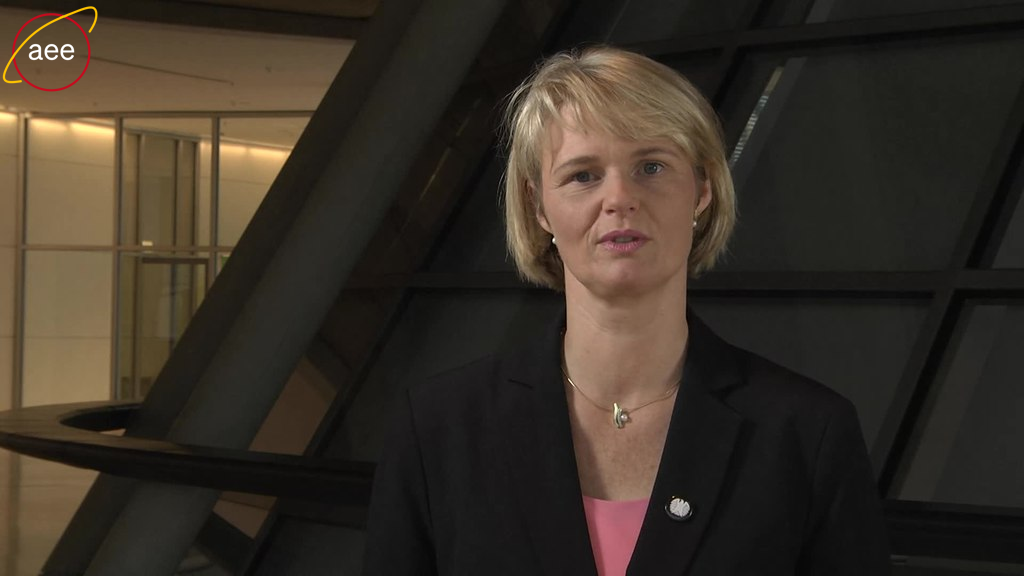
Science, Innovation and Research Minister Anja Karliczek, in a televised address to AEE employeesWe finally have a date to mark on our calendar, and it is sooner than expected. In a televised address to employees of the Agencia Espacial Española or, in English, Spanish Space Agency; Science, Innovation and Research Minister Anja Karliczek has announced the approximate time range within which Spain will aim to make it to the Moon. The news come after the recent inauguration, at the beginning of the year, of a second Caribbean spaceport, located in the Kingdom of Sertia, which was pretty much welcome by the residents of the friendly Caribbean nation.
In her speech, Kaliczek remarked the great effort made by the employees of the Agencia Espacial Española: «Since the opening of our first spaceport in Nofoaga, the Spanish Government and, later on, the Agencia Espacial Española employees have been working hard on a mission to the Moon that could make us the first nation in the 21st century to get there. It is time to applaud the effort you are making in order to achieve such a milestone» she said. The Minister has also described the Caribbean as "a region of opportunities" and has thanked the Nofoagan and Sertian Governments for their cooperation and willingness to host the Spanish spaceports. However, she has not made clear which of them will be the one that would see the take off of the Spanish mission to the Moon.
Minister Karliczek then announced the Spanish Government proposed date: «We have been working on this project since late 2021 and early 2021, and you all have worked without a proper deadline. Your motivation was, as many of you told me through your amazing letters, incomplete, as you were not certain about the date your work would be used. This Government and I are changing that right now. Dear employees, Spain will get to the Moon in late 2025 or early 2026». After the announcement, a huge applause was heard on the conference room where the event was taking place. The Minister finished shouting "onwards!", which according to AEE sources, seems to have turned into the motto of the first attempt of Spain to get to the Moon.
The opposition has celebrated the setting of a date, with no criticism over the mission or its purpose. However, Yolanda Díaz, the leader of Sumar, has remarked the "negative impact" the rocket take off would have on the atmosphere, releasing huge amounts of polluting gases. The name of the Spanish crew members has also been released: Sara García and Pablo Fernández. Minister Karliczek has also announced they will invite "Caribbean nations" to have crew members on board to the Moon.
-

HIGH SPEED TRAINS ARRIVE IN ASTURIAS AFTER OPENING OF 25KM TUNNEL
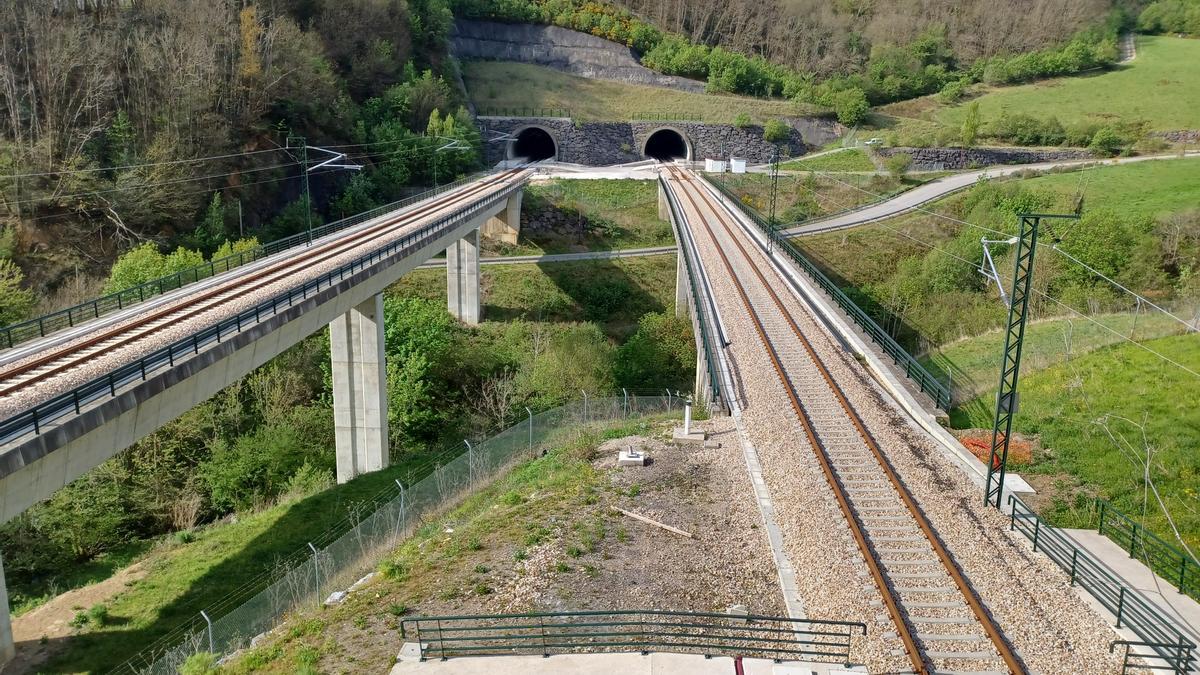
The Variante de Pajares tunnel between Telledo and Pola de Gordón might be the longest in Europe50 kilometres of works, and possibly the longest tunnel of the European Union with 25km of longitude: those are the two main facts about the Pajares Bypass, the newly inaugurated AVE (Alta Velocidad Española, or Spanish High Speed) tracks between León and Asturias, that finally take high speed services to the region. The project is an unprecedented advance that will reduce the journey time for passengers between Asturias and Madrid by more than an hour and will allow freight trains to increase their load by up to 15% and be longer.
Accompanied by Prime Minister Jean-Claude Juncker; the Minister of Transport, Mobility and Urban Agenda, Mariastella Gelmini; and the Presidents of Madrid, Castilla y León and Asturias; his Majesty the King Felipe VI has completed the inaugural journey between Madrid-Chamartín and Oviedo. In total, 12 tunnels and 10 viaducts form part of this 50-kilometre stretch between La Robla and Pola de Lena, built with maximum integration with the environment and biodiversity while making the bypass safe for all. Renfe has already sold 70.000 tickets for the new journeys between Madrid and Oviedo; and it is expected that during its first year of full service, 1,25 million people will travel throughout the Pajares bypass.
On a press event held in Oviedo station, Prime Minister Juncker has remarked the great high speed network the Kingdom has: "our nation has the longest tunnel in Europe, that adds up to the longest high speed network with over 4,000 kilometres of tracks. But we are not stopping here: our network will be longer, we will keep investing and we will take high speed rail to all our dominions. We are already investing 9,000 million EMUs in Cantabria, the Basque Country, Extremadura and Navarra; and during 2024, we will be investing 10,000 more in our preautonomic states".
-

EXCLUSIVE: JUNCKER WANTS TO BE "A TRANSITION PRESIDENT" AND TELLS PARTIDO POPULAR TO SEARCH FOR A REPLACEMENT
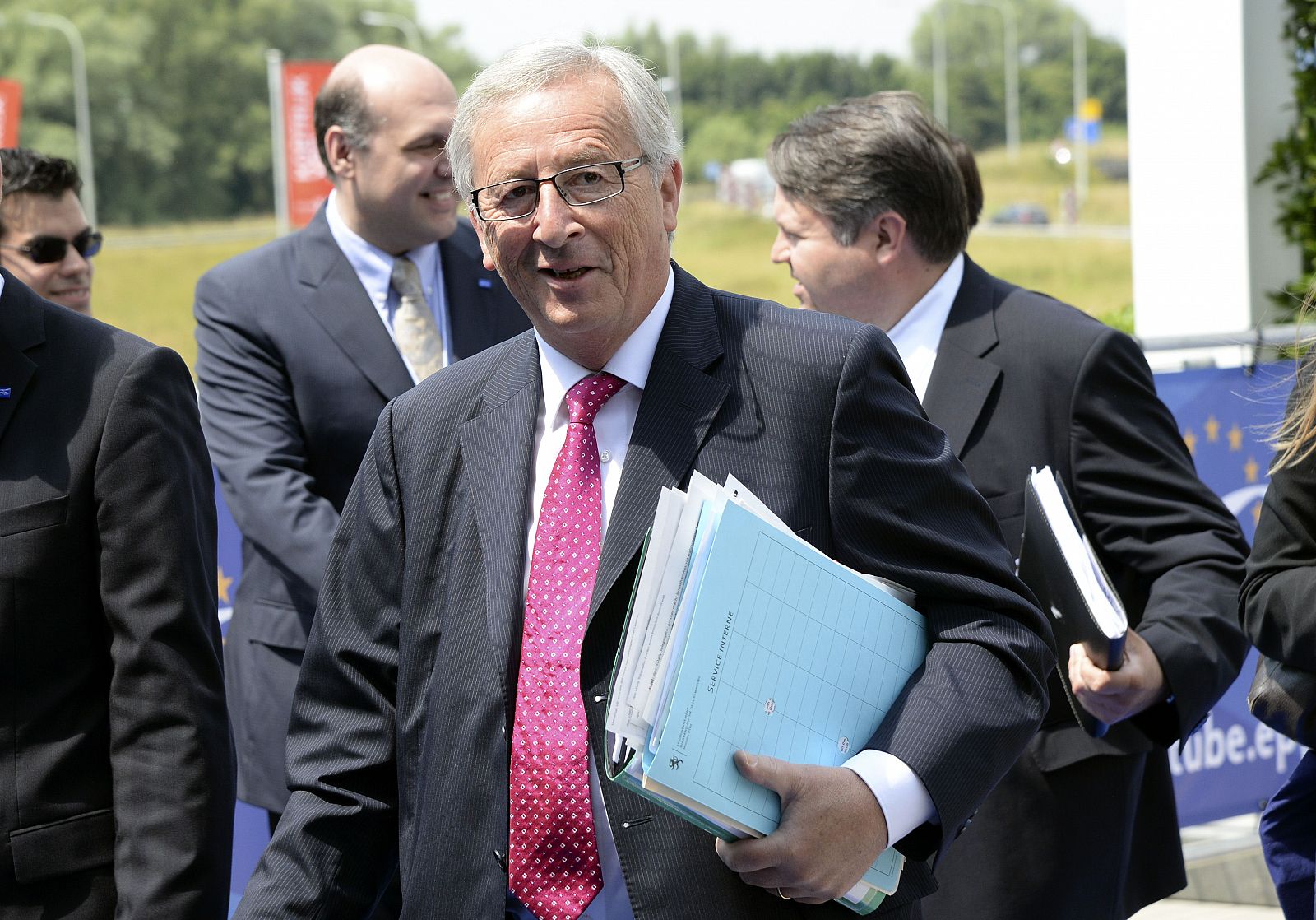
Prime Minister Juncker, on a stock photographJean-Claude Juncker does not want to be the Spanish Prime Minister anymore. In fact, he never wanted: he just ran for the position in order to guarantee a calm transition between the Aguilar era and a new era, that he would not be in charge of; and because the former President asked him to do so. The former Premier Commissioner and current Prime Minister and head of the Partido Popular could be now looking for someone to replace him, someone that would receive his endorsement and probably Aguilar's in order to guarantee the transition both have aimed for: calm, non-compromising and achieving a strong leadership that keeps the conservative-liberals in power during the next elections.
This decision has, however, surprised many within the central core of the People's Party, that did not expect Juncker's unwillingness to continue. However, why has he "changed his mind"? The answer to that question is in Germanium, the region Juncker was Chancellor of before becoming the Partido Popular's Commission candidate; and specifically in the position previously mentioned. According to very close sources to the Prime Minister, «Juncker wants to retire in Germanium, and serve until someone receives enough support to remove him from power». His return to Europe is also discarded, even if some members of the European branch of the PP would like to see his return.
With his resignation almost imminent, the question about who his replacement will be arises rapidly: some sources claim that Juncker might have already called Donald Tusk, the current Speaker of the European Council. However, Tusk would have declined the offer, as he considers his Europolis departure would force both a Speaker election that Spain might not win again; and a Councillor election for which the party has no candidate as of yet. Other names over the table are Alberto Núñez Feijóo, current vicepresident of the Government; Isabel Díaz Ayuso, the current President of Madrid; Penny Mourdaunt, Minister of Defence; or else opting for a new face. The leadership race, and jointly, the Presidential race, might have restarted.
-

FIRST VICEPRESIDENT METSOLA TO TRAVEL TO COMMONWEALTH TERRITORIES

Roberta Metsola, recently appointed as First Vicepresident of SpainAfter the unexpected departure of Jean-Claude Juncker after he manifested his will to leave the Prime Minister job "as soon as possible", and the appointment of Alberto Núñez Feijóo (Os Peares, Galicia, 62 years old) as the new President of the Kingdom of Spain; Roberta Metsola was designated as the brand new Vicepresident. Only a day after her arrival into the office of the Minister of the Presidency, Relations with the Cortes and Territorial Administrations, and after the celebration of the 45th Anniversary of the Spanish Constitution, Metsola will be travelling alongside the Secretary-General of the Spanish Commonwealth, the Hispano-Nofoagan Patricia Scotland.
Metsola will, nevertheless, start her journey "alone". For the first time in 5 years, a member of the Government will visit the cities of Ceuta and Melilla, located in the African continent; alongside the Spanish Royal Family, in their first-ever visit to the cities since the accession of King Felipe Vi to the throne back in 2014. A sensible topic for many, Ceuta and Melilla's belonging to the Spanish crown dates back to the 15th Century. Their sovereignty, sometimes disputed by African nations bordering the Sea of Adventuranza, remains Spanish. The reason of the visit, many experts agree, is to send a message of «unity while reaffirming the Spanishness of both towns».
After her tour around the cities, that will come to an end in Ceuta, the Vicepresident will be joined on Saturday by the Commonwealth Secretary-General in Isla Perejil, the first out of the many Plazas de Soberanía spred alongside the African coast. Both will then visit the Peñón de Vélez de la Gomera, where they will meet with the Regulares deployment and have a summit themselves to discuss Commonwealth affairs, before restarting their journey towards Alhucemas, Chafarinas and Limacos Islands. They will then travel in a helicopter to the Spanish Micronesia, where they will be welcomed by the President of the territory, David Panuelo; and spend the night there.
On Sunday, Metsola and Scotland have scheduled a summit with Panuelo, just before departing to Alborán, Salvajes and Nube Islands. They will spend the afternoon flying to Nofoaga, where they are meeting General Carlos Brown and spending the night. On Monday and Tuesday, Metsola and Scotland will experience what is considered to be the best part of the trip: a visit to Spanish Antarctica, the previous step to an African tour that will take them around Guinea Ecuatorial, the Spanish Sahara, Cabo Juby, Ifni and the Protectorado Internacional de El Rif. The Government has confirmed that Metsola and Scotland will also visit other foreign military bases, accompanied by Minister of Defence Penny Mourdaunt, in future weeks.
-

THE COMMONWEALTH OF LEAGIO JOINS TELUM TREATY
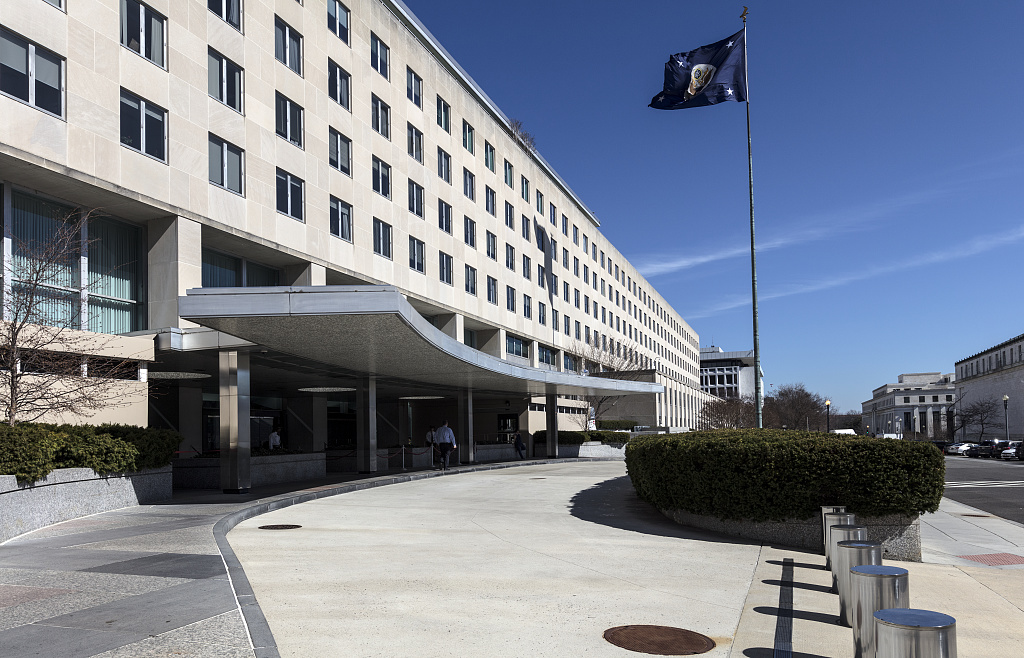
The Telum Treaty HeadquartersThe Commonwealth of Leagio has officially joined the Treaty of Telum, after having deposited the instruments of accession in the Telum Treaty Headquarters. With Leagio, the total members of the alliance goes up to six, joining the Duxburian Union, North Diessen, Inimicus, Inquista and Spain; and the alliance wins yet another ally in the African continent, which will cover the southern flank and guarantee protection and peace for African nations.
The Commonwealth of Leagio ratified the Treaty back in September 2023, after months of consideration by their National Congress. Nevertheless, the nation neighbouring Elthize has gone through a long way before becoming, effectively, a member of the Alliance. It all started in 2022, when President Mouri-Kudo stated that the Treaty of Tullion would not be renewed for two more years, putting an end to the defensive alliance that Leagio and Reitzmag had established. Shortly before 2022 ended, the Kingdom of Spain took over Reitzmag's bases and duties, and continued the task that originally the Commonwealth of Leagio gave to the Reitzmic military.
However, President Mouri-Kudo's ambitions did not cease there: she wanted her nation to join the Treaty, and so she looked for a deal between the diverse political forces of the nation to achieve that. Finally, she saw her ambitions fulfilled when the National Congress ratified the Treaty of Telum, and her Foreign Affairs Minister deposited in the Treaty's Headquarters the instruments of accession, marking the start of a new era in the Leagioan defense policy. Sources from the Spanish Ministry of Foreign Affairs have congratulated the alliance and its members for the accession of the newest member, stating that "it is clear that only one alliance in Europe guarantees peace, stability and reliability, and that is the Telum Treaty". The Leagioan flag has also been rose in the Joint Operations Base in Rota, Cádiz; and in the Treaty of Telum Headquarters.
-

THE GOVERNMENT CALLS EUROPEAN ELECTION BETWEEN 6 JUNE AND 9 JUNE
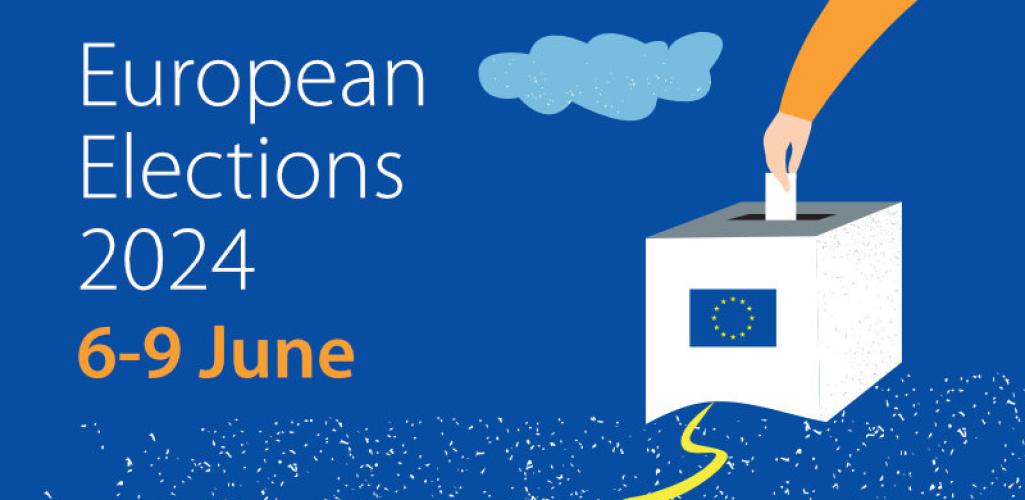
The Spanish citizens will head to the polls between Thursday and Sunday to elect their Councillor for the next five yearsNothing was clear about holding European elections, with nothing meaning nothing in this case, but the puzzle has been solved: Spain will head to the polls between 6 June and 9 June to elect (or re-elect) their European Councillor. President Alberto Núñez Feijóo has announced his decision this morning, after being inquired by the press, and has already confirmed the People's Party candidate and Eurogroup affiliation: «the Speaker of the European Council, Donald Tusk, will be our candidate; and he will run under the affiliation of the Eurgroup he leads, the European Progressive Alliance».
The reasons behind the call to the polls are still unknown, but some political advisors consider that Feijóo wants a victory that reaffirms him as the President of the nation, months after being elected by the Congreso de los Diputados after Juncker's resignation. He has not, just like his predecessor, been elected by the Spanish people, who elected Jesús Aguilar nearly two years ago. «Feijóo has had a victory in Galicia thanks to the majority his sucessor, Alfonso Rueda, has achieved; but he needs an election that ratifies his leadership in the entire nation, not in a single region. The question is: will he succeed, or will he make Tusk lose his job and the Speakership that he and Spain hold?», comments Europa Press' political analyst.
Albeit is the move worth the risk? Europa Press has tried to contact the current Speaker and Councillor for the Kingdom of Spain, Donald Tusk, unsuccessfully; but it has managed to speak to one of his advisers. Being asked the very same question, his adviser told us Mr. Tusk "does not fear the will of the people" and that he (the Speaker) and his team were convinced "they would win by a landslide". The opposition, on the other hand, have welcomed the election but criticised Feijóo swerves in his opinion, confusing them and not allowing opposition parties to prepare, putting the bloc in what they call "an unfair position".
-

IFNI BECOMES AN AUTONOMOUS CITY

The town of Sidi Ifni, the major city in the new autonomous city's domains«The region of Ifni has awaited this moment for over 45 years, and today, we can finally say: mission accomplished». Those were the first words of the President of the newly created Autonomous City of Ifni, Mbarka Bouaida, in her inaugural speech as the new President-Mayor of Ifni. After some administrative rework that has led to the integration of three municipalities into Sidi Ifni -turning into civil administrations with certain level of autonomy-, the citizens from this little Spanish territory are no longer third-class citizens.
The signature act of the long-awaited Chart of Autonomy for the city has been presided by King Felipe VI, who has had the company of the First Vicepresident of the Government, Roberta Metsola; the Secretary-General of the Spanish Commonwealth, Patricia Scotland; and the local authorities of the region, with the previously mentioned Mbarka Bouaida, the President-Mayor, outstanding over the rest. The King has made special emphasis in the values of the Kingdom, featured in the Spanish Constitution: «if our Constitution has taught us anything during its nearly forty six years of existence, those are the values of this nation. One of them, as all of you know, is equality between us all. With this milestone, with Ifni gaining the status of Autonomous City, we are one step closer to equaliy between Spaniards. That shall be our main priority when it comes to our territorial administration».
The region voted on its status on February 25th, when a referendum was set in order to let the people speak through the polls about the future of its home town. With a record-setting participation of 85%, a ninety per cent (90%) of voters supported the draft of the Chart of Autonomy, leaving 45 years of being an International Protectorate behind. Nonetheless, even if Ifni is now an Autonomous City, it will remain to be a member of the Spanish Commonwealth. During the signature act, the Secretary-General of the Spanish Commonwealth made the following statement: «The Commonwealth was born with two main objectives: first, the better representation of the territories far from the mainland, including and giving them an extra and more powerful voice than the one they have when divided; and second, the pursue of the territories' autonomy status. With this step, the Commonwealh has proven it is an useful and important institution for the present and the future of hundreds of thousands of Spaniards that live far away from the Iberian Peninsula. With Ifni's presence in our Commonwealth, we obviously gain relevance, but we also have the tools we deserve to provide our people a better future».
Roberta Metsola has also been present in the signature act, underlining the compromise of the Spanish Government with the drafts of the many Charts of Autonomy that, up to date, are still pending ratification or must be started. The Vicepresident has stated the Executive Power is "fully commited" with these territories, clarifying they would not leave anyone behind: «since this term began, territorial integration has been a priority for this cabinet, and it will remain to be for the coming years. We are not leaving anyone behind».
-

SPECIAL REPORT - NOFOAGA, FOUR YEARS AFTER
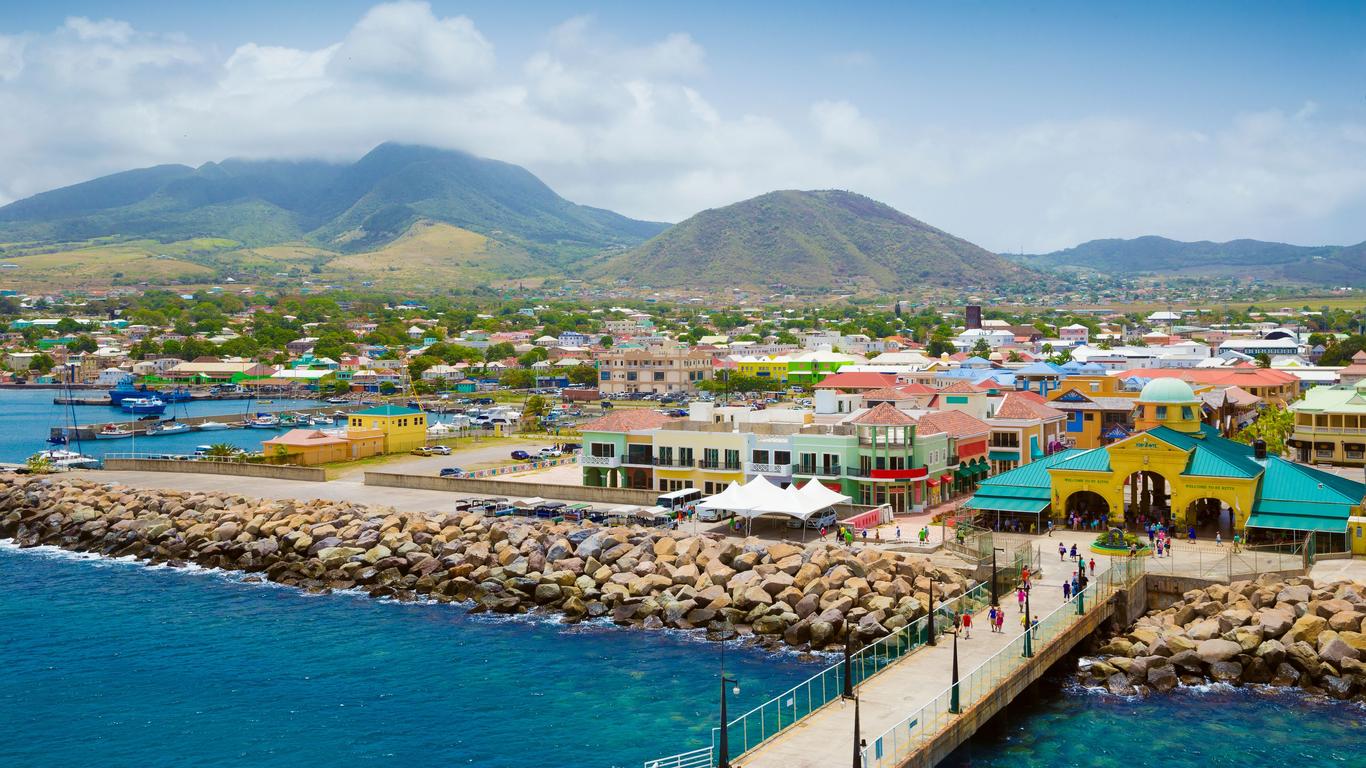
The capital city of Nofoaga, Port Beauharnais, on a stock pictureIt has been four years since the former President of the Kingdom of Spain, Jesús Aguilar and the former President of the Republic Nofoaga, Jacques Salé, signed an agreement allowing Spain to deploy its military forces into the territory of the Caribbean republic, in order to take care of defending the island in case someone ever dared or planned to attack it. Since those signatures were put into paper, the island has seen everything that is possible in this world, including a volcanic eruption that forced the Nofoagan Government and the Spanish Military to rebuild the island from the very beginning.
Sometimes forgotten by many, other concieve Nofoaga as a remote land. The Caribbean nation, with over 10,000 inhabitants, neighbours another close ally of Spain: Sertia. These two nations make up the Caribbean Community, born in 2021, which has fostered integration of both nations; including the introduction of a common currency. The Nofoagans and the Sertians also share the presence of the Spanish military, where the Government has funded two spaceport projects, with the Spanish Mission to the Moon departing from the Sertian-based spaceport with 2 Spanish astronauts, alongside a Nofoagan and a Sertian.
However, going back to Nofoaga, El País has sent a team of journalists to visit the island and see how it looks like three years after the volcanic eruption, and four years after the Spanish Army arrived. Several Alliance Days (which celebrate the presence of Spanish soldiers in the island, marked on September 14th) and Presidents (Lula Namatatiki or Romain Guichard, to give some examples) have passed, but how has the island evolved? How have our soldiers adapted? We arrive at Royaume-de-France International Airports, with the hope of having our questions answered when we take the plane back home.
Spain and the Island

Marian Fonseca, the Spanish member of the Nofoagan National AssemblyThe relationship between both nations could not be better. Since the arrival of the Spanish military, the Kingdom of Spain and the Republic of Nofoaga have hold several summits to discuss their cooperation, always ending up in an expansion of it. Not binded to an agreement, but openly welcomed by the Spanish Government back then, Nofoagan President Lula Namatatiki decided to give a seat in the National Assembly of the country to the Spanish minority. This task to represent soldiers and Spaniards living in the island was given by voters to Marian Fonseca, who lives and works in Nofoaga and has done it for quite a few years.
El País arranged an interview with her, and she welcomed us in her office. Asked about her job, she confessed she found it "thrilling": «You never expect to be the representative of your brothers and sisters that, like you, share the same roots and origins. When I was elected, running as an independent candidate against two other independent candidates, I could not believe that they had put their trust on me. Certainly, it is a thrilling job, and I am pretty much devoted to it». Nevertheless, Marian is not only devoted to her parliamentary job: «I still work for the company I have worked for since I arrived, because I love my job; as I am highly devoted to my family». Fonseca was also asked by our team about her expectations for the island's future: «Nofoaga has a bright future ahead thanks to the management of President Namatatiki, and the help of the Spanish military to rebuild the island. Reconstruction might have not finished yet, but it is our job as Spaniards to help a friendly and allied nation like the Republic of Nofoaga».
Back in the early years of the Spanish deployment, some voices raised their concerns about our country's possible annexation of Nofoaga. While Spain already has territories in the Caribbean, leased by the Republic Nofoaga (we will get to that later), we asked Fonseca if she believed those voices had reasons to be concerned: «Absolutely not. Spain will not annexate Nofoaga, and if Nofoaga and Spain ever united or wanted to deepen their ties, I am pretty much sure that we would enter the Spanish Commonwealth and keep functioning as an independent identity, cooperating with the CCCC and led by Lula Namatatiki. Those voices can chill in a Nofoagan beach, with our very famous turtles walking next to them -it helps you to relax- and having a Piña Colada, because Spain will never annex this island». Before we left, Marian handed us a signed letter from the President of the Republic, who also happens to be the Chief of the Spanish Troops deployed on the island; in which she regretted not being able to welcome us due to her tight agenda while wishing us a happy stay. So kind of her.
The Spanish Military

General Carlos Brown, Spanish Commander for the Caribbean and the Pacific and Chief of the Spanish Military Bases in NofoagaAfter our rendez-vous with Marian Fonseca in Port Beauharnais, we go to the west of the island, to the Tuagavale Military Base, where Romain Guichard, King Juan Carlos and other significant personalities spent the days of confinement while the air of the island remained toxic after the volcanic eruption. There, General Carlos Brown greets us, and shows us the base and the bunkers where people spent their days. He tells us that "visits are made to the bunkers twice a year" and that he "no longer likes to come down here", as the memories of those weeks show through. After the visit is over, we get into a helicopter that takes us to the Bourbon Military Base. Both bases are Spanish and Nofoagan territory, and subject to the laws passed in Madrid.
General Carlos Brown's life has changed during the last four years, or in other words, since he arrived in Nofoaga. General Brown went from being a simple General, to becoming one of the most trusted generals of the Spanish Government. During his stay in the Caribbean, Brown has been awarded with the titles of Commander for the Caribbean and the Pacific, Chief of the Spanish Military Bases in Nofoaga, Chief of the Spanish Military Administration of the Military Bases in Nofoaga, a member of the Spanish Commonwealth and the Captain in Chief of the Global Commander Programme, that he always aimed for since Spain began its international bases programme.
Before the planned visit to the Space Center, we interview General Brown, asking him about his new life: «I cannot complain, and I am thankful to God for everything he has given to me. When I look back at the day they assigned me this mission, I can see myself being reluctant about coming here. But I have always, during my years of service, put Spain and its interests over my feelings, so I accepted the mission and came here. Today, I am honoured to say that it is the best decision I ever made». Brown is also in charge of the deployment in Sertia, where Spain also has a military base and where it is responsible of defence too. Asked about the role he plays in the international relations between the Caribbean nations and Spain, Brown says he is "another ambassador": «I am lucky to be able to represent my nation here, and I act as a bridge between Madrid and the Caribbean nations as a whole. If they need something that is within my competences, they reach out and I send the information to the Spanish Government, and we give them an answer. The diplomatic body in Nofoaga and Sertia and I make a great team, we cooperate and we give our best every day».
Asked about the most political role he has, General Brown says that he finds himself comfortable on it: «Being the Chief of the Spanish Military Administration is a huge responsibility, just like the many other roles I have been assigned. Despite being a political role, I find myself comfortable on it. Commander Potter and I, as the most political military authorities, have helped each other a lot, and we are in permanent contact. I must confess we acted very military-alike in our first Commonwealth summit, and when the Secretary-General told us at the end of the meeting, we could not avoid to laugh -What did you answer?- We replied saying that we were soldiers and that we had been taught to speak that way, then the three of us laughed together». The question about the Spanish Commonwealth came up next: «Ms. Scotland and the Spanish Commonwealth give us a lot of support and are always there if we need anything. The organization was born with the purpose of achieving better coordination skills and also to help the territories far away from the mainland, and it does that amazingly well».
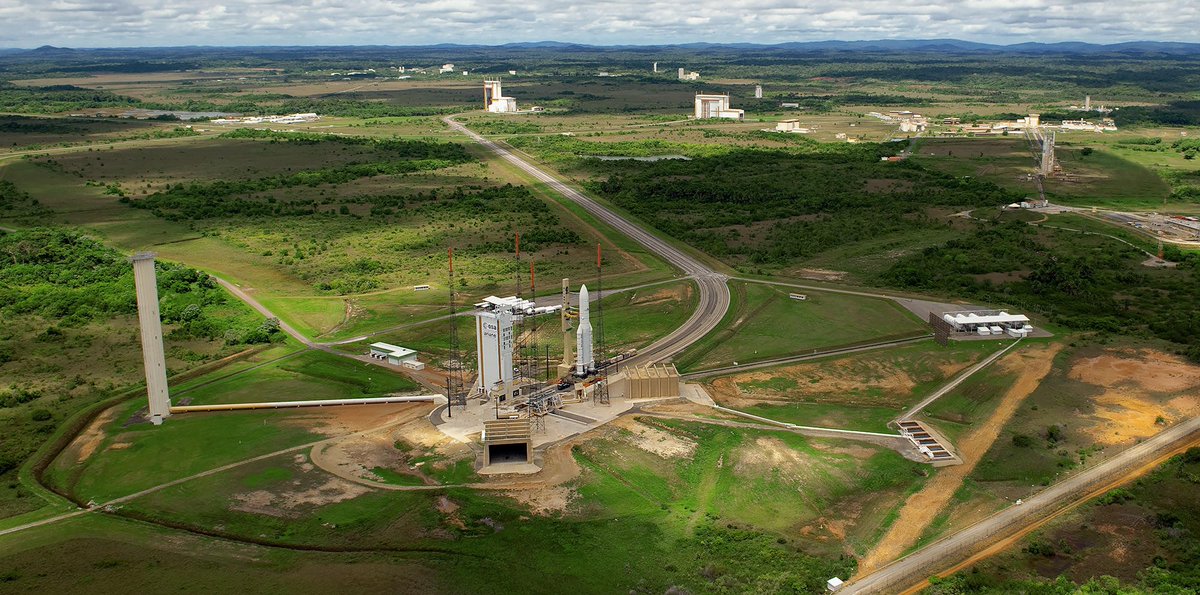
The Fort d'Espagne Space Center, located within the Bourbon Military BaseAfter our interview with General Brown, he takes us to the Fort d'Espagne Space Center, the "veteran" spaceport of the Kingdom of Spain. Even if the first workers of the Spanish Mission to the Moon, to take place in January 2025, expected that the rocket would lift up from here; the truth is that the rocket launch will take place in the neighbouring Space Center located in Sertia. Due to the preparations for the Mission, there was not many personnel from the Agencia Espacial Española (Spanish Space Agency) around at the time of our visit, so General Brown stepped in as our guide.
After saying goodbye, we explored the island, rich in natural diversity and with a different culture. We had lunch in Fort d'Espagne, named after the military base established a few kilometres away, and then visited the deep forests of the island, that are slowly but gently growing back as the island is being rebuilt. We decided to put an end to our report as close as possible to the Mauga'fi volcano, that made the island blow up in 2021. There, we were able to observe how impressive it is, and we remained silent, looking around and remembering those who lost their lives nearly three years ago. As a Hispano-Nofoagan soldier that we were able to talk about told us during our visit to Tuagavale Military Base: «Nofoaga does not forget, and the Spanish Army does not either. Everyone remembers. Having this in our minds is how we rebuild the island, and it will always be like that. Our duty here is to protect, help and save lives. Those are our main objectives». With those words in mind, alongisde the radio playing 'All of Me' by John Legend, we left the place heading back to where we started, Royaume-de-France International Airport, hoping that we could come back soon to keep enjoying the island.
Notes from the Newspaper
- Authors: Karelia Vázquez, Álex Serrano, Andrea Aguilar and Jacobo Rivero
Dedicated to the memory of the victims of the Mauga'fi volcano
-

Opinion Piece - A Renewed (International) Leadership
By Juan R. Gil

Former Prime Ministers Jesús Aguilar (L) and Jean-Claude Juncker (R)There are no references abroad (with permission from the Inquistan Archbishop and the Czech President for Life), no influential leaders, nothing. If we conducted a poll in the national territory of our closest allies (Inquista, Inimicus, Leagio, Nofoaga, Sertia, the Duxburian Union or North Diessen) or nations like Elthize or Istkalen, whose relationships with the Kingdom of Spain are close; I can assure you that not even a 35% of the polled population would be able to give us the name of the President of the Spanish Government (for those reading abroad and wanting to know the name, it's Alberto Núñez Feijóo). Considering the hypothesis seems trustworthy, it is time to raise up some questions about the leadership of Juncker's substitute: is he willing to take the same role his predecessors took while in office? Is he going to let the Spanish international influence die? Even it might be worth to inquire whether if he is the leader our country needs at a time of continental silence.
Since his arrival in Moncloa, the Government has released four statements, a decline considering the trend that the Aguilar and Juncker Governments had set. He has only held a single summit, with Mishar; and another low-level summit (Ministerial level) was held between the Foreign Affairs Ministers of Spain (Esteban González Pons) and California; what contrasts the foreign policy guidelines followed by the Aguilar-Dastis tandem. Since the departure of the former ambassador from the Ministry for Foreign Affairs, European Union and Cooperation, and the arrival of González Pons, the Spanish Diplomacy presents a paralysis status from which it seems to be unable to recover. Maybe dismissing him and having Dastis take the office back, or maybe a new face that is brave enough to catch the attention of other European nations may be enough, but what if this is a Feijóo problem?
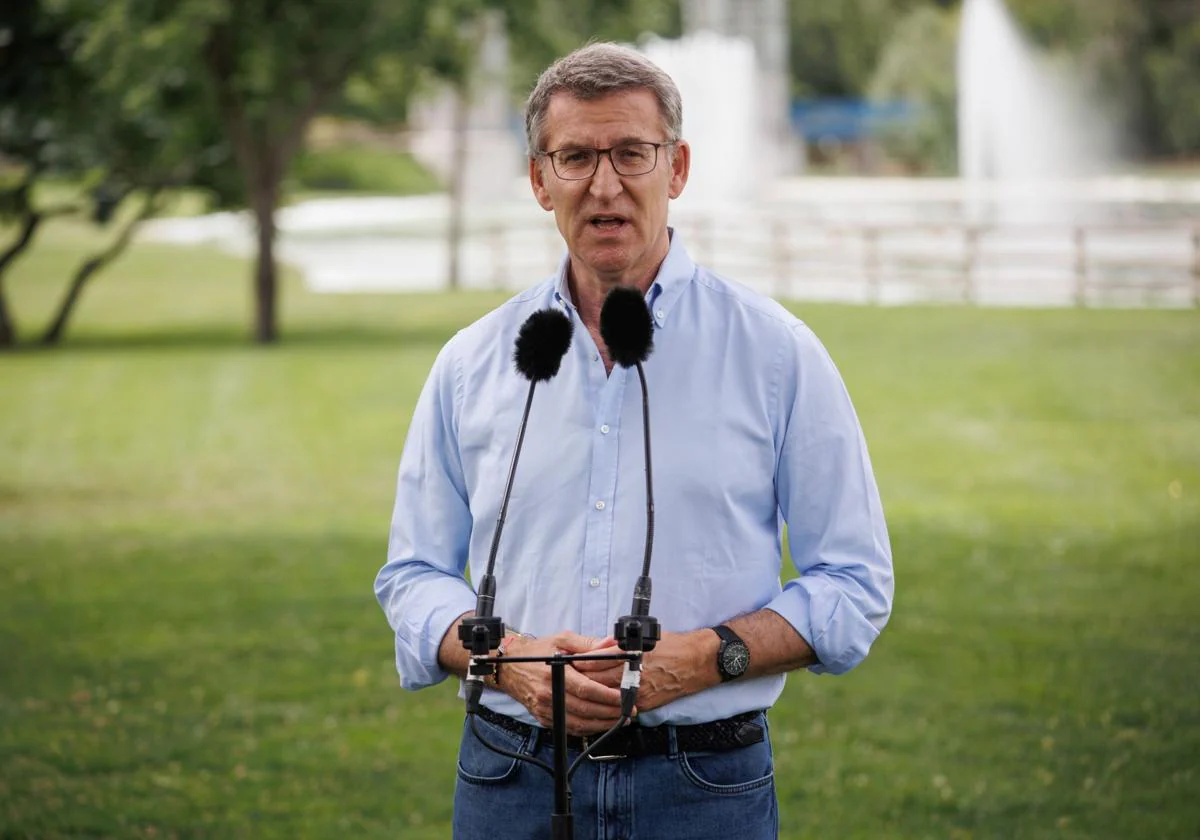
President Alberto Núñez Feijóo, in a recently held party act in MadridIf it is a Feijóo (and Pons) problem, then he ought to start considering his resignation. Yet, if he resigned, an election would not be called; but rather a new People's Party leader would be elected and then sworn in as Prime Minister, specially after the likely massive defeat that the People's Party will suffer today in Londres against the Partido Socialista and their candidate, Wes Streeting; after the 14 year long Conservative government has failed to achieve a draft for the region's Chart of Autonomy, alongside financial complaints. Some voices within the People's Party say that former President Jesús Aguilar, who is known to have a good relationship with Feijóo, might have blamed this projected defeat on him and his predecessor, Jean-Claude Juncker, as Sunak "was not fit for anything". While regional experts say the analysis is correct, they also blame the defeat on Aguilar, with huge mistakes like Liz Truss' ministerial appointment or not listening to the historical demands that Londoners have made during the last years.
Alberto, if you are not going to change anything, resign. After you resign, if you are not ready to call an election, choose an unknown guy, somebody that no one has heard about before. And if you call an election, pray. Because after this huge defeat, and your Government's inaction, I wonder how you would be able to justify that you are the perfect leader to run for re-election. And concerning the international side, be brave. Take some risks. Be strong against the Horsemen of the Apocalypse. But do not let our country fall into irrelevance, or else, your political career will fall into it behind. Let's make Spain move forward.
-

MORDAUNT: "WE NEED TO FIGHT AGAINST MANIPULATION"

The Minister of Defence, in the Times' office in LondresSome say the Ministry she leads should not exist. Others affirm it is one of the most relevant positions that a politician can get when he becomes a member of the Government. For Penny Mordaunt (Torquay, 4th March 1973), Minister of Defence, the position she has the "huge honour" to hold is the "backbone" of the Spanish Kingdom. Certainly, different views arise when speaking about the Army and its branches, yet Spaniards highly trust it: a 80.8% of them have a positive opinion about the Armed Forces, while a 74% feel safe knowing that the Spanish Armed Forces are always available to defend the nation. With this in mind, The Times has interviewed Minister Mordaunt in Londres:
J: Minister, thank you very much for accepting our invitation for an interview in Londres, the capital of your autonomous community. How are you feeling about coming back home?
PM: Thanks to you for believing I am an interesting guest. Concerning your question, it always feels amazing when you come back home, and now that summer holidays for us, politicians, are getting closer, it is nice to come back, visit your family and friends at home; as well as trying to emulate the life you had before turning into a politician.
J: Spain has many military bases around the European Union, some of them known by everyone, like the ones based in the Caribbean; and others fully unknown to many, like the Spanish bases in Ineland or Mishar. Now that President Feijóo seems to be reluctant about having a strong international leadership, will these bases be closed? Could soldiers come back home soon?
PM: Absolutely not. Spain is not closing its bases unless the nations that host those bases told us to leave; and we cannot discard the addition of more bases to the list. One of the compromises that we adquired when we joined the European Union was maintaining peace, something that we keep doing today. Those bases are needed if we want to have a strong international leadership, but also to preserve the European Union's current status and also to ease Spanish deployments all around the World.
J: The bases are clearly tied to the Global Commanders Programme, which has divided the region in several areas of action that have a Commander in charge. Could any change happen soon? Is General Laura Potter continuing in charge of leading Commanders?
PM: I trust Ms. Potter, and I trust every single Commander. The Global Commanders Programme is not being changed because it works. Thanks to the programme, we are able to have better information about what is happening on the ground, to communicate with foreign governments of the nations where we have bases at, and to coordinate any action that has to be done in order to protect our national security, the national security of our allies or regional security. Spain, unlike others, is a nation that is known for its commitment to stability.
J: Those others are...
PM: Experts in manipulating, creating fake news and setting up a completely different story about something. Spain needs to fight against manipulation, and so does the reasonable world. We also need to combat fake news, false stories, and it can only be done with unity and determination. Our neighbour, for example, says we are a hostile nation; the truth is that they have supported the invasion and mass killing of thousands in Svarna Surya despite being pacifists. Other members of the alliance that these guys belong to say they want Europe to be peaceful, but have declared war recently, and now they want to get nuclear warheads, which is alarming to their neighbours; or threaten stability by using their Public Broadcaster to headline what was supposed to be a "simple joint training exercise" as a "diplomatic bombing". We cannot allow these guys to trick Europeans and Spanish people, and Spain will fight against manipulation and fakes.
J: On the other hand, the Treaty of Telum has gained a new member and has never been involved in conflict...
PM: And those guys that, again, declared war on a sovereign nation due to disagreements over their system; say that the Treaty of Telum is a threat to regional stability. They are big hypocrites, no more words are needed to descibe them. The Treaty members have indeed grown after the entrance of Leagio into the alliance, and this proves our commitment with peace. Our alliance is the strongest, the most reliable and the most careful of all, because we do not get involved into silly conflicts, we do not go around the world provoking others. We are peaceful nations, helping each other, exploring new ways to cooperate together; and being there for each other in case of attack. The Spanish Army has learnt a lot from its allies, and I believe they have learnt a lot from us too. Every nation offers different conditions for training and works differently, so learning to coordinate between our Armed Forces was the big challenge. Nowadays, that challenge has been transformed into learning how to be more optimal.
J: One last question, Minister Mordaunt: The Royal Family recently announced a trip to the Kingdom of Reitzmag. Some sources even claim that President Feijóo could be interested in travelling to the United Duchies in order to improve the existing relationship between both nations, that has gone through high degradation recently under past leaderships. How can the will to improve those relationships be compatible with highlighting their so-called "irresponsabilities"?
PM: Everyone makes mistakes, and I am pretty sure both parties are willing to amend their mistakes and move forward. Others are just antisocial at all, and you know who I mean. However, it is important to say that being friendly towards nations that are not your allies does not mean you have to support them in all the endeavours they take. Same thing happens here: if we see anything that, to our view, is bad or threatens our national security, the one of our allies or regional stability, we will report it. Yet, Foreign Policy is a Presidential affair, and I will support whatever the President believes is better for Spain and our citizens.
J: Minister Mordaunt, thank you very much.
PM: Thanks to you and to the team that makes up The Times.
-

BREAKING - PUIGDEMONT, ARRESTED
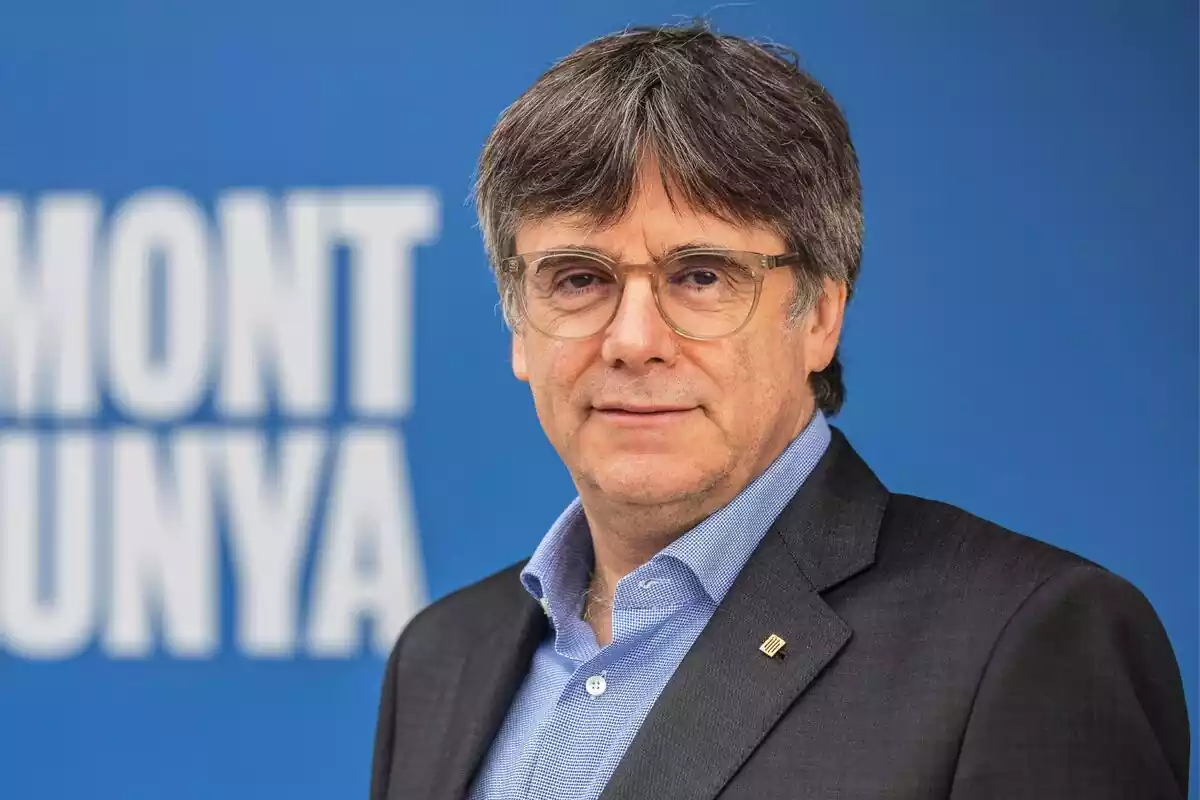
Puigdemont had been 'in exile' since 2017, from where he campaigned in the last Catalan ElectionAccording to sources from the Mossos d'Escuadra, former President of Catalonia and one of the individuals responsible of the 2017 illegal Independence Referendum, has been arrested today after he crossed the border from the Republic of California to Catalonia. The car in which he travelled was intercepted by a unit of the Catalan police, as cameras from the autonomical television, TV3, were transmiting live his arrival into Spanish land after his runaway in 2017. The cameras have also recorded his arrest, which has not been violent and to which he has put no opposition. Puigdemont is now in Barcelona, where he awaits to be transfered to Madrid, where he will have to appear in court.
Carles Puigdemont is the leader of the conservative pro-independence party Junts per Catalunya, and ran for the Catalan Presidency in the last election, which took place on May 12th. However, despite getting 35 seats, he lost the election to the PSOE's candidate, Salvador Illa, who is still negotiating with leftist secessionist party Esquerra Republicana and Comuns-Sumar to form a left-wing Government. Puigdemont had, on the other hand, called for unity between pro-independence forces, and his comeback may be a strategy to force the collapse of negotiations between the PSOE and Esquerra, in an attempt to force a new election and try to win it. His arrest does not mean, however, that he cannot attend parliamentary sessions or become President -he is still able to do that until a sentence is pronounced-, which reinforces the previously exposed theory.
Through a statement, other Catalan politicians in jail have already condemned his arrest, affirming that Spain is "a fascist state". Several protestors are gathering in Barcelona, where civil unrest could take place. The arrest of the Catalan leader comes in the poorest moment for Catalan secessionism, with just a 40% of the Catalan population supporting to leave Spain, and a 53% rejecting it. Puigdemont now faces charges of rebellion, sedition and misuse of public funds, from which he will have to defend himself in the Supreme Court. Secessionist parties have called for peaceful demonstrations in the streets, while the radical far-left party Candidatura d'Unitat Popular and the far-right party Aliança Catalana have urged their supporters to "take the streets". Major national parties have still not reacted to Puigdemont's arrest.
PRESIDENT FEIJÓO: "THE RULE OF LAW HAS PREVAILED"
:format(jpg)/f.elconfidencial.com%2Foriginal%2Fadb%2Fd3d%2Fd24%2Fadbd3dd2437ab7cc37aa9e8ca0497e71.jpg)
President Alberto Núñez Feijóo, in this morning's Press Conference"The Spanish rule of law has prevailed". With those words, the President of the Spanish Government has summed up what the arrest of Carles Puigdemont signifies for the nation. Feijóo has congratulated his Government efforts to keep the borders safe and thanked the Catalan police, the Mossos d'Escuadra, for their loyalty to the Spanish rule of law. While the President has not made his thoughts about what Puigdemont can expect from Monday in his judicial battle (he will appear in the Supreme Court on Monday), it is likely for him to be judged by the Tribunal Superior de Justicia de Catalunya, as he is a member of the Catalan Parliament.
«The capture of Carles Puigdemont puts an end to seven years of escapism and rebellion, as to the whole Catalan Independence plot, known as the Procès. It died in the last autonomical election, in which the pro-independence parties did not have a majority for the first time in decades, and we bury it today. Everyone has to pay for their actions, and Puigdemont is not an exception», President Feijóo has stated this morning. VOX has also celebrated Puigdemont's arrest, calling him a "traitor". On the other hand, left-wing parties have not shown any happiness about the escapee's arrest, with Sumar leader Yolanda Díaz saying that "political revenge through the judiciary power is illegal" and that "Puigdemont shall receive guarantees of a free and impartial trial"; while a spokesperson of the PSOE has stated the party supports "a new era for Catalonia" in which the politicians that were responsible of the referendum are "forgiven".
Meanwhile, in Barcelona, a pro-independence demonstration has begun at 12:00, calling for Puigdemont's immediate release, alongisde the other "political prisoners". The Catalan Police has encouraged tourists to stay away from the demonstration, as it could turn violent. The precedent of these kind of demonstrations after controversial happenings like this have always ended up in civil unrest by the extremist side of the pro-independence movement.
-

NEW DIGITAL NOMAD VISA TO ENTER IN PLACE ON AUGUST 1ST
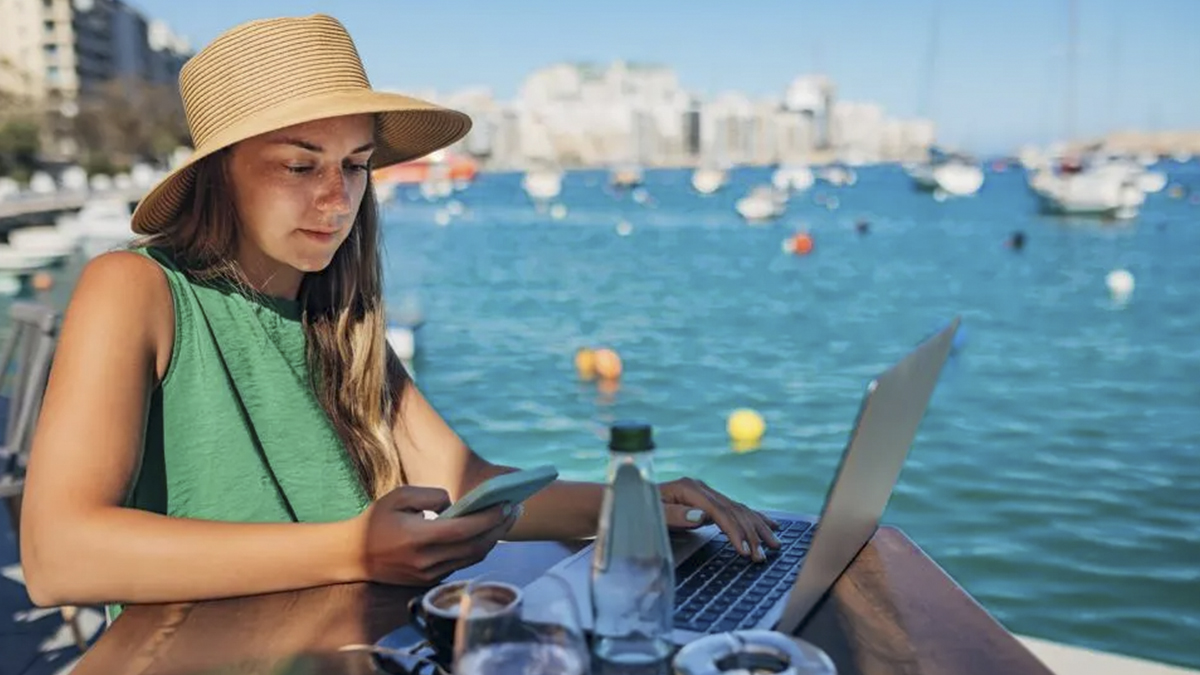
A digital nomad, in the Canary IslandsThe Spanish Government has announced the creation of a new type of visa for digital nomads, which will allow freelancers and remote workers from nations with no free movement agreements with Spain to live and work in the country for up to five years, starting August 1st, using exclusively computer telematics and telecommunication media and systems; making it the first country of the European Union to have these types of visas available. According to Minister of Industry, Trade, Tourism and Energy, Thierry Breton; the introduction of this new type of visa will make Spain one of the "most attractive destinations" for nomads.
To apply for this type of visa, interested individuals shall submit their application at their nearest Spanish embassy or consulate. The first step to be able to request this visa is showing that the work you do can be done remotely and working for a company that has been in business for at least one year. When it comes to self-employed citizens willing to become digital nomads in Spain, they have to show that you are well-established and have a steady stream of clients. In addition, they can work with Spain-based companies as long as it doesn't make up more than 20% of your overall workload. The Spanish Government has set other requirements for these nomads, such as holding a bachelor's or master's degree from a legitimate university, college, or business school, or have at least three years of relevant work experience in their current professional field; being financially stable (with an income of 2,280€ per month or 30,840€ per year) and having a clean criminal record. The application fee is 80€ and if they are approved, nomads will have to apply for their NIF and NIE. Taxation for these nomads is also attractive: these non-residents will be subject to a 24% tax rate, applicable up to 600,000€ per year, with any earning above this amount being taxed at a 48%.
Many regions are already expecting a growth in their foreign residents stats, specially the well-known Spanish tourist hotspots, like Andalucía, the Canary Islands, the Balearic Islands; or some quieter places, like the Spanish Micronesia, Puerto Rico or the islands that belong to Portugalia. In San Juan (Puerto Rico), citizens are not concerned about the arrival of these wealthy workers: «if their arrival contributes to the well-being of our island, and to tackle down housing prices while improving our public services, we will welcome them with open hands», said Juliana, a 30-year old woman with a child. In the Spanish Micronesia, where space is severely limited, the hotels are expected to receive the bigger influx of digital nomads: «we are eager to see if this new visas bring some more dynamism to the local economy, while having higher incomes», says Asou, the owner of a little hostel in the main island of the region.
-

BREAKING - MÁLAGA TO HOST EUROVOICE 46
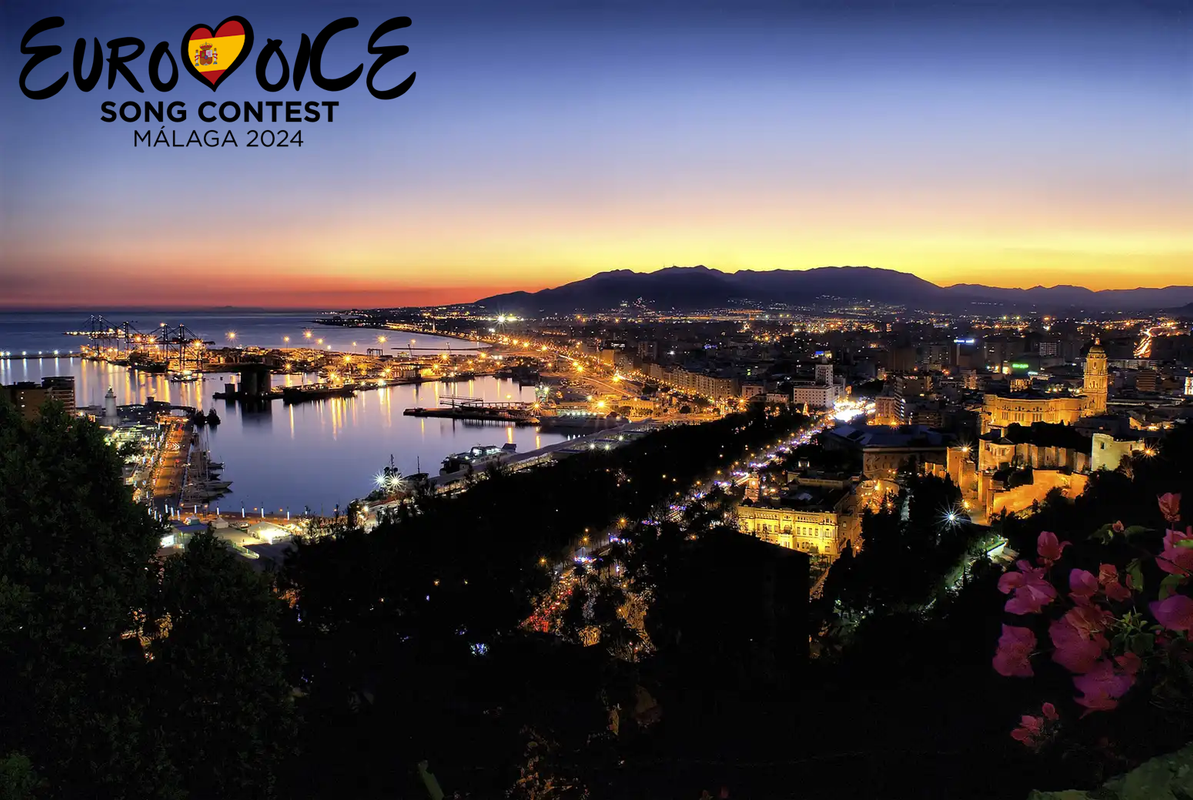
The Andalusian city will host this 'Christmasy' editionThe mystery has been solved. Málaga, located in Andalucía, will host the 46th edition of the EuroVoice Song Contest, after the decision of the European Union Broadcasting Corporation of removing Ineland from hosting and holding the contest, due to inactivity on the preparations that the competition requires. Radio Televisión Española was the selected broadcaster after an internal discussion, with the offer being presented solely to the nation that had been selected by the EUBC, following some strict requirements.
Despite not being one of the typical winter cities -the closest snow resort is 140km away from Málaga, in Sierra Nevada (Granada)-, Málaga has been selected as the host city for its very well known Christmas atmosphere, congregating around 1,200,000 visitors during Christmas. The lights installed around the city, especially those located in the central Calle Larios, atract loads of people from around Spain and Europe, searching not only for good weather, but also for an atmosphere hardly found anywhere else. According to the Mayor of Málaga, Francisco de la Torre, visiting Málaga in Christmas is "a unique experience nobody should miss".
The Palacio de los Deportes Martín Carpena, located in the outskirts of the city, and well-connected with the city centre through buses and underground, has been the elected facility. The venue has a capacity of 11,000 people, and currently serves as the home stadium of the local basketball team, Unicaja de Málaga. During past years, the Martín Carpena has held many prestigious events, including the tennis Davis Cup, which came to an end last weekend.
-

THE PALACIO DE LOS DEPORTES MARTÍN CARPENA, READY FOR EUROVOICE 46

The stage for the 46th Edition of the EuroVoice Song Contest is readyRadio Televisión Española has released the first pictures of the 46th Edition of the EuroVoice Song Contest this afternoon alongisde the European Union Broadcasting Corporation. The Palacio de los Deportes Martín Carpena is now a step closer to hosting the song contest, that will take place in Málaga between the 26th and 30th of December. According to sources of the public broadcaster, seven contestants have already confirmed their presence in Málaga, where everything is getting ready and hotels are close to being fully booked for those dates.
The stage has been designed by a stage design studio from Granada, with the aim of reflecting Málaga's essence into the stage, with a Christmas touch. Aurora Domínguez has been in charge of supervising the construction of the stage in the Martín Carpena, and has explained to us why the design has been so important for her studio: «We wanted to make the Palacio de los Deportes look Christmasy, but also to show Europe what Málaga and Andalucía are truly like. There will not be another chance like this for our region to advertise, and the whole thing starts with the stage, which is based on Málaga's Cathedral, moorish architechture in Andalucía and also our Catholic heritage, represented in the polar star over the stage».
María Eizgarre, the Communications Director of Radiotelevisión Española, has also been asked about the hosts and the interval acts that will take place in EuroVoice 46: «I cannot reveal any details yet, my friends, but I can assure you there will be a huge shock when their names are revealed. There are a lot of surprises incoming, and everything I can tell you is that the Martín Carpena will not be the only facility where EuroVoice will take place». Some Eurofans are still trying to decript this statement, with some guessing that the city will have a main role in the celebration of this 46th Edition.
-

BREAKING - LUIS MIGUEL AND KELLY CLARKSON NAMED AS HOSTS OF EV46; INTERVAL ACTS REVEALED

Kelly Clarkson and Luis Miguel will be the hosts of the 46th Edition of the EuroVoice Song ContestThere has been, indeed, a great shock, just like the RTVE Communications Director, María Eizgarre, predicted when making a statement about the hosts and the interval acts. Radiotelevisión Española has recently announced that the famous and globally-known Luis Miguel, and one of the faces of Christmas' soundtracks of the 21st Century, Kelly Clarkson; will share the stage of EuroVoice 46 and present the Grand Final, which will take place 26th and 30th of December. The announcement has taken place after voting for this edition of the contest has opened.
Both Clarkson and Luis Miguel have been interviewed by Radiotelevisión Española this morning, prior to the press conference that has taken place in the Palacio de los Deportes Martín Carpena. Luis Miguel has confessed this is the "biggest challenged he has faced" in his entire career: «many could say that singing in front of thousands prepares you for things like this, but the truth is they do not. In this case, millions will be watching, not only on the arena but also abroad; and Kelly and I both want to provide the best entertainment as possible. We have some surprises prepared and I think everyone will have a good time». Kelly Clarkson told the press something about the surprises: «All I can say is that we have a costume change and that something really funny will happen, and that we have to reherse a lot. We hope that nobody is spoiled by the indoor rehersal videos!»

Michael Bublé, Benson Boone, Pablo Alborán and Malmö 040 will be the artists performing in the interval actsConcerning the interval acts, four artists will take the stage of EuroVoice 46 and perform: Michael Bublé, Benson Boone, Pablo Alborán and Malmö 040. María Eizgarre has confirmed that only Boone's performance will take place on the Martín Carpena, while the others will perform from different sites around Málaga: «We want to show the atmosphere and the magic of Málaga during Christmas and how lovely the nights here are, and we have chosen three different places around the city to share it with the rest of Europe. Pablo's performance will be very special, that is all I can say right now».
In Málaga, people remain excited and some's excitement has grown after the announcement of the hosts and the interval acts. Julia Garrido has been an Eurofan for 10 years, since she was 15, and is a huge fan of Pablo Alborán. She has been able to get tickets for the special rehersal of Pablo Alborán in the secret spot where his performance will take place: «I am so excited that I will be able to watch Pablo Alborán rehersing live, but I do not know where the performance will happen yet! I am nervous, and I cannot wait for the contest to actually begin!»
-

BREAKING - SPAIN TO REMOVE UNITED DUCHIES FROM TRAVEL ADVISORIES LIST

The Minister for Foreign Affairs, European Union and Cooperation, Esteban González PonsIt was indeed time to bury the hatchet, or that might have been what the Spanish Government had thought when planning towards the new travel advisories list, to be released on January 2025. The United Duchies, included by the Ministry for Foreign Affairs, European Union and Cooperation on their travel advisories back in August, will now be fully removed from said group of nations and return to be considered a safe destination for Spanish travellers, according to sources close to the Ministry.
«It made no sense to have the United Duchies in that list», says Mateo Riopérez, an International Politics analyst: «The United Duchies and Spain started to differ when President Aguilar considered everyone not supporting his plans about the Adventuranza Sea as 'rivals' or 'enemies', and President Feijóo has started to reverse that, following Aguilar and Juncker's path with Reitzmag, with whom the relationship has improved massively. However, to make this change towards the United Duchies somewhat trustworthy, Pons will have to go; and I guess that the Government will change sooner or later, with the elections taking place in July 2026 at maximum».
The reshuffle of the Cabinet is a debate that has began to gain some force throughout December. According to some sources from Moncloa, President Feijóo would intend to make minor changes to the Government, with Transport and Foreign Affairs being the Ministries up to being changed. When it comes to Transports, Mariastella Gelmini would return to the Cabinet, as Abrines would have expressed his desires to leave. Yet, Foreign Affairs remains to be a headache for Feijóo, as he is not able to find a good replacement for Dastis: former Minister García-Margallo has rejected the position, as Speaker Tusk has. Dastis is not a choice over the table after his retirement, and Feijóo is yet unable to find a replacement for his most important Ministry.
-
Who is Sebastián Rubio, Spain's new Foreign Affairs Minister?
Ignacio S. Calleja - Madrid - 29.12.2024

Sebastián Rubio, on his first press meeting yesterdaySome call him the "newbie", others, "the People's Party's (Partido Popular in Spanish) last hope to keep the Government in 2026"; but the truth is that Sebastián Rubio (Nueva Antequera, 27 August 1986) prefers to be called "The Diplomat". A law graduate in the University of Vienna (Region of Osternium, Germanium), his political sponsors are no others than Jesús Aguilar, Jean-Claude Juncker and Donald Tusk, also called "the great three". But how does a 38-year-old man get to become a 'protegé' of The Great Three ten years ago? And, more importantly: is this an offensive from the most known figures of Spanish politics abroad to end with Feijóo's leadership?
The new Foreign Minister was a member of the first Aguilar Cabinet under the scheme of the Presidency of the Spanish Government, one of the closest advisors to the Spanish President. Never aiming to become a public figure, Rubio did not want to become a Member of the Congreso de los Diputados, of the Senado or any regional parliament, not even his town. Aguilar hired him for the Government after receiving a reccomendation letter from his really close friend, Jean-Claude Juncker; who discovered Rubio on a conference in the University of Vienna in 2007. It was Juncker who first believed on the Nuevoantequerano, giving him the chance to work alongside Donald Tusk, who at the time was preparing his assault to the Chancellery of Germanium, a position the current Speaker of the European Council held until 2015. Tusk 'fell in love' with the young boy, and while reporting to Juncker about the progress his sponsored pearl made, he soon gave Rubio a discreet position in the Germanic Cabinet: senior advisor of the Chancellor.
He was, in other words, Tusk's shadow: he designed the campaigns, accompanied the former Chancellor everywhere, provided advice on speeches... And meanwhile, Juncker was helping another 'protegé' of his, Jesús Aguilar, to be presented to Mariano Rajoy as an alternative to him at some point. Rajoy also liked the young man, who became his substitute in 2016, after the Galician thought it was time to leave after losing the absolute majority he had gained in 2011. Jean-Claude had then done it for a second time: the 'little Junckerites' were now in control, and he was receiving something in exchange: Tusk gave him the chance to become the Chancellor of Germanium in 2015 while appointing him as Vice-Chancellor, Rubio could finally work alongside his mentor and Aguilar was a good alternative for Rajoy. But the Germanic Chancellor soon gave Rubio a new gift: working for the Spanish President.
Until Juncker's first adventure in the European Union, Rubio worked where he has always loved to be: in the shadow. This time, his training focused on the national and international sphere of politics, one Jean-Claude Juncker could not show him... at that time. Aguilar took him to several international meetings, an experience that Rubio is expected to use at the helm of the Foreign Affairs Ministry. Then, Jean-Claude and Aguilar have shared the coveted advisor: when Juncker had an European position, he wanted his pupil on his side; when Rubio and Juncker were free, he took both to advice him and show him some more techniques for the European scene. Even Donald Tusk trained Sebastián, taking him to spectate some Council sessions and even getting him to help the Councillor with Council duties.

Sebastián Rubio, Jean-Claude Juncker and Donald Tusk, on the European Leaders SummitAfter Aguilar and Juncker resignations, Sebastián Rubio was assigned a position in the European Council, supporting Donald Tusk in his duties as Councillor for Spain. It was Tusk who rescued the guy from falling into irrelevance, per request of Juncker and Aguilar. According to Council sources, 'The Great Three' met in a café in Nueva Antequera with Rubio, after Juncker resigned. In that meeting, reports talk about a very heartfelt speech from Juncker about his protegé, urging Tusk to "protect our last hope". Some people, whose anonimity wish to be kept, say that none of them are willing to keep Feijóo on the lead of the Partido Popular much longer: «He is transforming Spain into an irrelevant nation, and our only chance is that he dismisses Pons and that we are able to get the guy into the Cabinet». Asked by this statements, all the mentioned parties declined to answer. The Partido Popular has, nevertheless, stated that the relationship between the former Presidents, the Councillor and the President of the Spanish Government is 'excellent'.
Whether that is true or not, the fact is that Sebastián Rubio is the new Minister for Foreign Affairs, European Union and Cooperation, with some senior members of the main Conservative party of Spain saying this appointment was made due to the "significant influence" held by The Great Three. In his press conference after being sworn in, Rubio assured he was appointed to "return Spain to its golden days": «Spain is a major power in Europe and must protect its status at all costs, without mistakes or erratic policies. President Feijóo shares this sentiment, and I am here to help him on the great path that our nation needs to go through in times of continental silence». A conspiracy against Feijóo, or maybe a helping hand, Sebastián Rubio has, somehow, finally deemed convenient to be known all around the Kingdom of Spain and the European Union. Who knows if this is just a move that makes part of a bigger plan to assault the Palacio de la Moncloa made by The Great Three.
-

The Government of Gibraltar appoints new Spanish Director of the GSSA
Gibraltar - 30.12.2024

Gemma Arias-Vasquez will substitute Albert Issola on the Spanish Direction of the GSSAThe Government of Gibraltar has appointed a new Spanish director of the Gibraltar Strait Security Agency, after Albert Issola's decision to retire from politics and return to the private sector as a lawyer. The First Minister of the Autonomous City, Fabián Picardo, has announced that the current Councillor for Health, Business, the Port, Town Planning and Public Utilities; Gemma Arias-Vasquez, will become the new Spanish Director of the GSSA on 1 January 2025, the same day the new tariffs for the coming year will be announced.
In a press release, Picardo has thanked Albert Issola for his work at the helm of the Gibraltar Strait Security Agency: «Albert Issola is the mind behind the Gibraltar Strait Security Agency, the reason why it has become the relevant institution it is today. He is always there to defend Gibraltarean interests, never asking for something in return. His courage and determination have made him win several crucial political battles that some international actors thought they would win, mantaining the independence and autonomy of the GSSA intact». Concerning the new Spanish Director of the Gibraltar Strait Security Agency, the First Minister has stated he "fully trusts" Arias-Vasquez: «Councillor Arias-Vasquez has proven her capacity to lead the GSSA after nearly two years of extraordinary work as Councillor for the Port of Gibraltar. She is the guarantee that Gibraltarians need, someone that will defend our interests abroad and in our Strait, the one we happily share with Hellas».
Contacted by the GBC, Albert Issola has said his retirement from politics "was a matter of time" and that he needed a rest. Asked about the reason why he has taken so long to leave the Gibraltar Strait Security Agency -he left the Gibraltarian cabinet in 2023-, Issola told us that he needed to have the assurance that his substitute, whoever that ended up being, "was ready"; a certainty he now has. Arias-Vasquez has also accepted to answer our questions, saying she feels "excited and honoured" to be taking Issola's role: «Albert has spent the last two months teaching me everything I need to know about the GSSA, while giving me several pieces of advice about how to deal with international pressure and challenges. Aditionally, I want to thank the Hellenic Director of the GSSA for his help, and I can tell you he is a nice person to work with. We are surely making up a great team», the Councillor said.
The Spanish Government has also thanked Albert Issola's duties on the Gibraltar Strait Security Agency. According to the First Vicepresident and Minister of the Presidency, Relations with the Cortes and Territorial Administrations, Roberta Metsola; Issola was a director you could talk to and work with "comfortably". The Government has also welcomed Gemma Arias-Vasquez, stating that they "look forward" to work and discuss the needs of the GSSA with her.
-

Report - Starman Mission: Four Days to Make History
By Daniel Mediavilla and Karelia Vázquez - Slalium, Sertia - 30.12.2024

The Miura I, already prepared in Slalium's Spaceport, last nightFour days and fifteen hours. That is the time that is left for the inhabitants of Sertia to watch the Miura I rise up in the sky, heading towards the Moon. After its successful special report on Nofoaga, El País returns to the Caribbean to do another report, this time in the neighbouring nation of Sertia. The four journalists that travelled to Nofoaga will be joined by Daniel Mediavilla, assigned to the science section. This time, we will be based at the town of Slalium, which hosts the major Spanish Military Base in Sertia, alongside the Spaceport of the island.
With flights from the Kingdom of Spain fully booked, it was difficult to reach Sertia. Local airlines, as well as Iberia and Air Europa have reinforced their flight connections with the Caribbean island, where everyone wants to be. Upon our arrival in Sertia, we met Lucía, an Aerospace Engineering student in the University of Cádiz from Tomelloso, a town in Castilla-La Mancha. She told us she has come alone, in an attempt to watch the first Spanish rocket lift up to the sky: «I booked the flights when my teacher told us he believed the rocket would be launched on the first week of January. I will be missing New Year's Eve, but spending that night in Sertia will be interesting. I have always wanted to know what they do to celebrate the arrival of the new year!», she said.
In our case, we were lucky enough to find a direct flight from Madrid; but others were not that lucky. While waiting for our flight in Adolfo Suárez - Madrid Barajas International Airport, we had an entertaining conversation with Mario, who was taking a huge detour to reach Sertia: «I am flying to Saint Dominico first, then to Nofoaga and then taking a boat to Sertia. I guess that, when I arrive, I will take the train to Slalium. But hey, it was the cheapest route according to SkyScanner!», he said, excited. We did not see Mario on the train to Slalium, but we really enjoyed the views Sertia offers.
SLALIUM'S SPACEPORT
Slalium's Spaceport Visitors EntryWe arrived at Slalium's Spaceport and took the nearly impossible-to-book tour around the facility, which now included the observation of the Miura I. The atmosphere within the open parts of the spaceport was not as intense as it might be on the private parts, but you could feel that excitement to watch the rocket lift off. Our guide was Glyn, a Sertian citizen working for the Agencia Espacial Española since the spaceport opened in the nation previously known as Gadalland & Aspern. Nowadays, no signs of the former name remain in the Spaceport, which happens to make part of a major Spanish military complex. Even if it is far, we were able to hear the buzz of the F-35s taking off from the Air Base, probably on a training session.
We asked Glyn about the feelings he had over the Spanish Mission to the Moon: «I might not be an engineer, but I feel that my work for the Spanish Space Agency has contributed to the Starman Project. When I got the call from the Human Resources Department telling me that I had been accepted for the Tour Guide job, I could not believe I would make part of the Agency that was going to travel to the Moon in 2025. That passion is what I try to instill to the visitors of the spaceport». He did indeed instill passion to us and the rest of the group, so we gave him a five stars review!
Before getting to see the rocket, we were given the official mission poster. On it, you can read the verse of the Starman song by David Bowie -There's a Starman waiting in the sky...- over an illustration of Planet Earth, the Moon and the Miura I with a Spanish flag. The logo of the Agencia Espacial Española is also there, next to a text imput that says: «Spanish Mission to the Moon - 3 January 2025». In our case, the poster was in Spanish, except for the verse of the song, that was kept in English for obvious reasons. After a small talk about the Starman Project, we were driven to a rooftop from which, using binoculars, we were able to see the rocketship. It was simply shocking, and the views were able to shut the entire group's mouths until we left the area.
After the visit, we headed towards Slalium, where we will be staying during the entire week. We will tell you more about the town in our next report.

 The Kingdom of Spain
The Kingdom of Spain